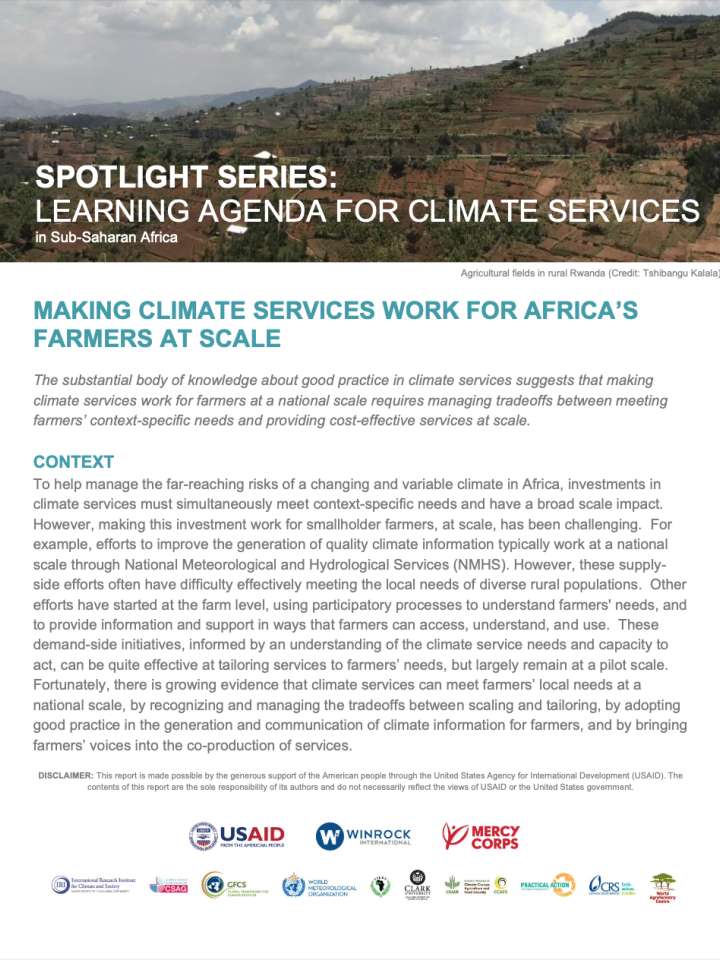Spotlight series: Making climate services work for Africa's farmers at scale
This paper assesses climate services work for Africa's farmers at scale. The substantial body of knowledge about good practice in climate services suggests that making climate services work for farmers at a national scale requires managing trade-offs between meeting farmers’ context-specific needs and providing cost-effective services at scale.
The paper finds that to help manage the far-reaching risks of a changing and variable climate in Africa, investments in climate services must simultaneously meet context-specific needs and have a broad scale impact. However, making this investment work for smallholder farmers, at scale, has been challenging. For example, efforts to improve the generation of quality climate information typically work at a national scale through National Meteorological and Hydrological Services (NMHS). However, these supplyside efforts often have difficulty effectively meeting the local needs of diverse rural populations. Other efforts have started at the farm level, using participatory processes to understand farmers' needs, and to provide information and support in ways that farmers can access, understand, and use. These demand-side initiatives, informed by an understanding of the climate service needs and capacity to act, can be quite effective at tailoring services to farmers’ needs, but largely remain at a pilot scale.
Explore further
